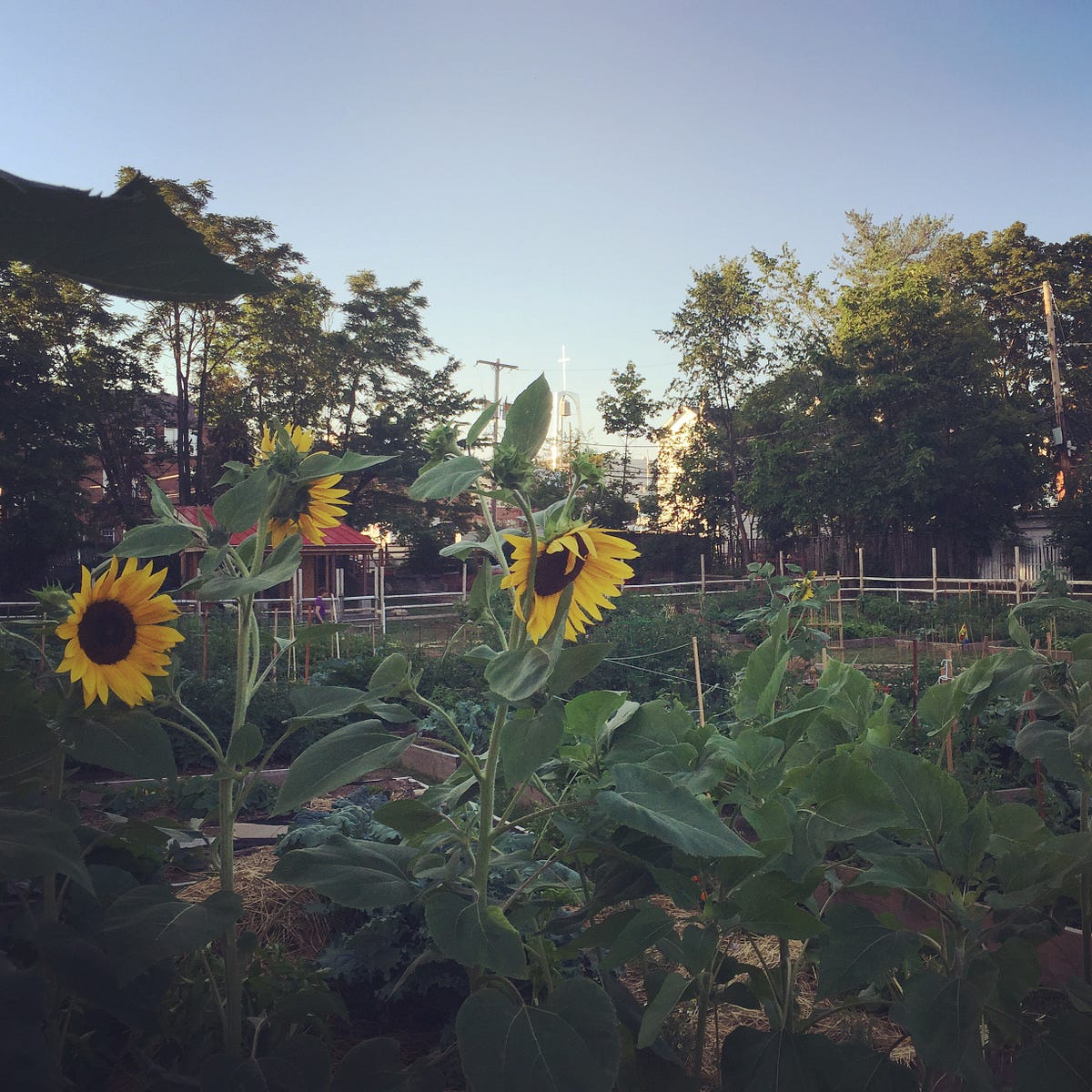Grow It Green Morristown this year is celebrating 10 years of bounty from its humble beginnings rooted in Morristown dirt.
On the heels of the financial recession, before the town’s redevelopment boom, when community and school gardens were still new enough to pique the interest of a local reporter, Grow It Green Morristown’s Early Street Community Garden emerged as an oasis that would transform the town.
What I didn’t know when I first entered the garden’s flower-lined fence eight years ago seeking to meet its denizens and bring to life its sense of community for a story in the Daily Record, where I worked as an editor at the time, was how the garden would come to transform my own life and shape my relationship with community.
Grow It Green Morristown was founded by friends Samantha Rothman, Carolle Huber, and Myra Bowie-McCready, who rejected local leaders’ vision to make Morristown a grey, unwelcome town of banks with a police force deputized as immigration officers. They drove past the junkyard off Speedwell Avenue, offers of peace were exchanged with the land’s owner, and, after a lot of hard work cleaning it up and putting down plots, their collective dream was realized.
Christian Schuller, then-community garden manager and the filmmaker behind “Growtown Motown,” gave me a tour and introduced me to gardeners as he helped them identify common pests, doling out organic treatment advice and encouraging words. On one of my first visits, I joined gardeners for a Sunday workday and potluck, hauls of fresh dirt in wheelbarrows being shoveled out as neighbors stopped by the front picnic tables like bees to nectar.
I soon met Huber, Rothman, Farmer Shaun Ananko, and other local legends who rallied around the garden in its early years, including Kendra Arnold, Rebecca Feldman, Andrea Lekberg, and the late Marty Epstein and Marianne and Mark Tobler, whose giant pumpkin surely holds a record to this day.
“There is a magic to this place beyond what we could ever imagine,” Rothman told me at the time, in 2011. “We set up the infrastructure, but it’s the people who use the space that make it what it is.”
Many of the people I met through Early Street became my Morristown ambassadors and good friends. They are who convinced me to move to the town to put down roots, become even more engaged in the community I once only knew through the lens of journalism.
I attended Grow It Green’s bike-in garden movies under the stars, summer pizza parties at the Urban Farm at Lafayette, ladybug releases, the organization’s springtime Diamonds for Kale gala, its parking spot takeover on South Street, and its solstice celebrations.
With friends made through the garden, I have attended backyard shindigs, book clubs, town council and planning board meetings, marches for the movement of black lives and immigrant rights, and rallies outside my local Congress representative’s office.
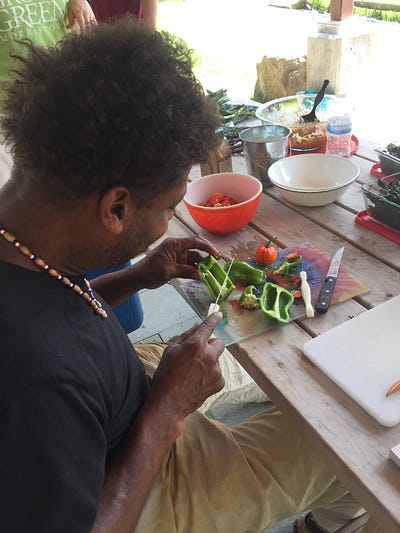
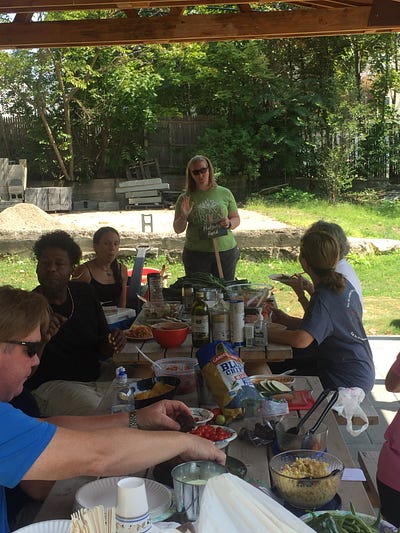
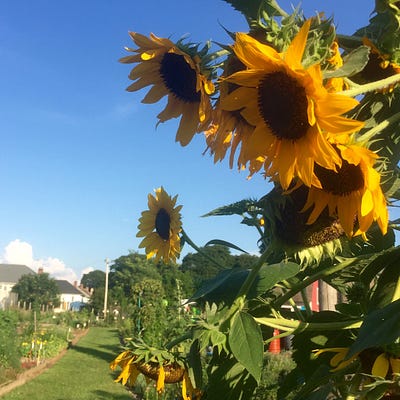
I became a Grow It Green Morristown supporter and a volunteer helping to harvest vegetables at the Urban Farm for its farm stand sales. I frequented their table at Morristown’s Winter Farmers Market and bought their produce, teas, and whole ears of corn you can pop in the microwave — still one of the coolest things I’ve ever done with a vegetable.
When I first visited Early Street, the garden was on borrowed time, every season could have been its last before becoming Morristown’s newest luxury apartment complex. But Grow it Green, Mayor Tim Dougherty’s administration, the Morris County Preservation Trust, and the Trust for Public Land saved it from development and preserved it for the public good.
That act meant four years ago, with the expansion of the garden, doubling the number of plots to more than 100, my name got called up from the wait list.
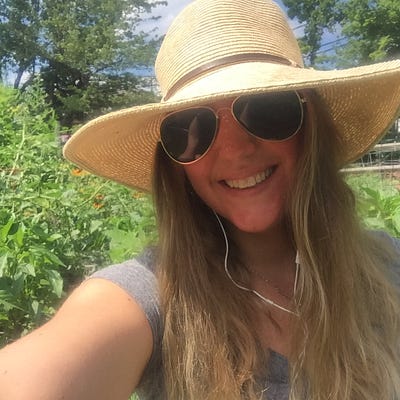
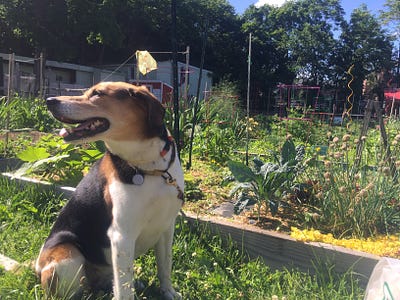 By then, I had several years’ experience eating seasonal vegetables through a local CSA and two years tending two garden beds in a sprawling backyard complete with chickens and bees owned by a former landlord. But my time at Early Street has been the most rewarding.
By then, I had several years’ experience eating seasonal vegetables through a local CSA and two years tending two garden beds in a sprawling backyard complete with chickens and bees owned by a former landlord. But my time at Early Street has been the most rewarding.
Gardens always need tending. They require tilling, planting, weeding, watering, harvesting, bug squashing, and, the toughest task of them all, clearing after a long season. Having a plot at a community garden, as opposed to a home garden, means you likely have to go out of your way to get there.
But community gardens offer their own benefits. No garden is grown alone. There are neighbors with which to pass the time and learn about different approaches, soaking up their wisdom. Helpers who turn the compost, mow the grass, take in your squash when you can’t possibly eat any more. There are the angels who surprise you by watering your plot on the hottest of days, who leave you trinkets and gifts like painted rocks, or who let you snack on their raspberries.
In the heat of summer, I promise you there is nothing better than getting up early to water your plot as you soak in the beauty of it all, of 100 plots together, and plucking basil and fresh tomatoes off their stems for dinner. This joy never fails to eclipse the disappointment of a cucumber plant that never grows, a tomato plant that wilts and dies with disease, a sprawling squash plant ruined by an invasion of beetles — all lessons for next year.

In the years since I first stepped foot in the Early Street Community Garden, it has changed a great deal. Modest homes across the street have been torn down to make way for two high-rises. Its recent overhaul, undertaken after its preservation, added a public parklet with inviting flower beds and lounge chairs in front and a solar-powered pavilion in the back, a walking path, apiary, bike repair station, and public art project, The Gateway Totems, commissioned by Morris Arts, created with input from the longtime residents in the surrounding community to honor Morristown’s immigrant history. In the center is a large rain garden to absorb the runoff that once nearly flooded out my back plot.
My life has changed a great deal, as well. I got a new job. I married and moved to Morristown, then moved away after a divorce. I downsized my plot. Friends have disappeared from the garden to tend to their growing families, we get together less. I sometimes feel like I have lost the connection I once had to this community.
But like the start of every spring, I returned to Early Street this growing season with excitement to see what the year will bring. On the May morning I arrived to weed my plot, I chatted with old and new garden neighbors as if winter never happened. We traded spare lettuces, salt hay, and wine. I advised a new gardener on how to efficiently rake out weeds and accepted aspirin to plant near my tomatoes’ roots.
Without a plan this year, I put my hands in the dirt and have slowly filled — maybe overfilled — my plot with flowers, herbs, and vegetables that are quickly growing.
I look out from Early Street Community Garden today and feel amazement at how unique this space off Speedwell Avenue is, steps from a high school, senior center, and vibrant Latin American businesses, and how it survives such change in every direction.
This garden is but one of the ways Grow It Green Morristown has built community, the thing that has had the biggest impact on me. Its Urban Farm at Layafette has reached even further, giving nearly a decade of students in Morristown a first-hand experience with real food and the natural world around them. Its CSA and generous donations of bounty has helped stock the fridges and pantries of thousands of struggling families who needn’t know hunger in such a bountiful state.
To the founders and board members and past and present leaders, Erica Colace, Farmer Shaun, and Abby Gallo, and all those who have helped Grow It Green Morristown flourish, I extend my sincere and deep gratitude for all you’ve done with humble dirt.
What you have grown is more than flowers and vegetables, you’ve truly created a space for people to find and create community, for magic to emerge.
I cannot wait to see what the next decade brings.
Meghan Van Dyk is Dodge’s Informed Communities program officer and communications director. All photos are by her. Full diclosure: Dodge supports Grow It Green Morristown through its Morristown initiatives.
